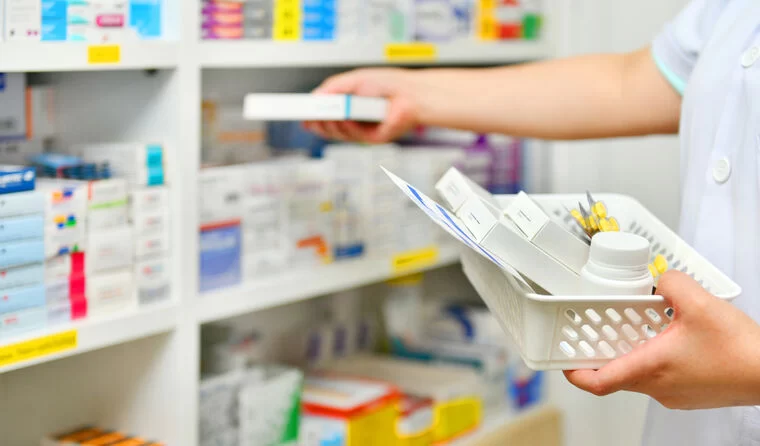
The Importance of Pharmacy Medication Error Reporting Systems
As a pharmacy professional, I've always believed in the importance of patient safety, and one area that has a significant impact on that safety is the medication error reporting system. When we think of healthcare, we often focus on the clinical aspects – the drugs, the treatments, the procedures. However, there's another side to the healthcare system that’s just as important: the infrastructure that supports it, and the tools that ensure we are doing things right. Medication errors can have serious consequences, but with effective reporting systems in place, we can dramatically reduce the risks.
What Are Pharmacy Medication Error Reporting Systems?
A medication error reporting system is essentially a mechanism that allows pharmacists, healthcare providers, and even patients to report any errors related to the dispensing or administration of medications. These errors can range from something as simple as incorrect labeling to more serious issues like administering the wrong drug to the wrong patient. The goal of these systems is not just to identify errors after they happen, but to prevent them from occurring in the first place.
How Do Pharmacy Medication Error Reporting Systems Work?
At the core of any medication error reporting system is a user-friendly platform where errors can be logged and analyzed. Typically, these systems are digital, making it easier for healthcare providers to report issues as soon as they are noticed. The data collected is then used to identify patterns, pinpoint common issues, and develop strategies to prevent future errors. The most advanced systems are integrated with electronic health records (EHRs), allowing pharmacists to immediately see if a reported error might affect current treatments.
The Role of Technology in Preventing Medication Errors
In today’s fast-paced healthcare environment, technology plays a pivotal role in improving medication safety. Many modern pharmacies use computerized provider order entry (CPOE) systems, barcode medication administration (BCMA), and electronic medication administration records (eMAR). These systems help to ensure that the right medication is given to the right patient at the right time. However, technology alone isn't enough. We need to create a culture of safety where errors can be reported without fear of punishment, and every healthcare worker is encouraged to contribute to improving the system.
Real-World Examples of Pharmacy Medication Error Reporting Systems in Action
In my own experience, I've seen firsthand the positive impact that a robust reporting system can have on reducing medication errors. One of the most memorable instances occurred at a hospital I worked at a few years ago. A patient had been prescribed a medication that was unfortunately contraindicated for their condition. Thanks to the hospital's error reporting system, the issue was caught early, and the error was corrected before it could harm the patient. The system allowed the error to be flagged and communicated quickly across departments, preventing a potential disaster.
The Benefits of Medication Error Reporting Systems
Effective medication error reporting systems provide a number of key benefits for both healthcare providers and patients. These include:
- Improved Patient Safety: By identifying and addressing errors before they can harm patients, these systems significantly improve patient safety.
- Increased Accountability: With clear reporting and tracking mechanisms in place, healthcare professionals are more likely to take responsibility for their actions and work towards preventing future mistakes.
- Data-Driven Improvements: The data collected through error reporting systems helps organizations to implement targeted training, refine workflows, and improve overall pharmacy practices.
Overcoming Barriers to Reporting Medication Errors
Despite the obvious benefits, medication error reporting systems face some challenges. One of the biggest barriers is the fear of punishment or blame. Many healthcare workers hesitate to report errors because they fear negative consequences. This is where the importance of fostering a non-punitive culture becomes clear. The focus should always be on improving processes and preventing future errors, rather than blaming individuals. When pharmacy professionals feel supported and encouraged to report, the system becomes far more effective in preventing harm.
How Can Pharmacy Medication Error Reporting Systems Be Improved?
While most healthcare institutions have some form of medication error reporting in place, there is always room for improvement. For instance, integrating more sophisticated machine learning algorithms can help identify potential medication errors before they happen. Additionally, increasing staff training on how to properly use reporting systems and encouraging a culture of open communication can make a significant difference in how effectively these systems operate. As technology advances, we can expect to see even more innovative ways to track and reduce medication errors.
Conclusion: A Commitment to Patient Safety
In the end, a pharmacy medication error reporting system is not just a tool – it’s a vital part of a broader commitment to patient safety. As healthcare providers, it’s our responsibility to ensure that the systems we use are as effective as possible in protecting our patients. By continuously improving our reporting systems, embracing technology, and fostering a culture of safety, we can significantly reduce the occurrence of medication errors and improve the overall quality of care in our healthcare institutions.














